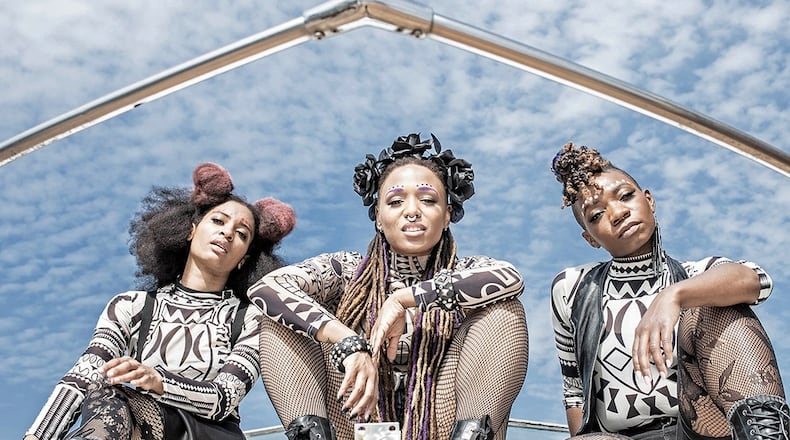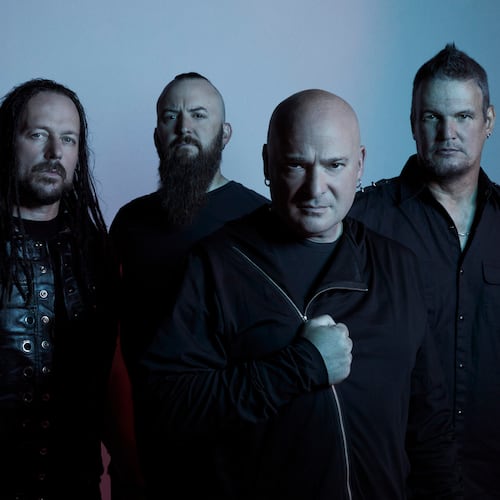The story of the arts since the pandemic began has in many ways been told virtually.
From stage plays to museum exhibitions, content that once seemed to require a live audience had to shift to online formats to remain viable. Such was the case last year for the annual BronzeLens Film Festival in Atlanta, one of the few cinema festivals that not only showcases movies by filmmakers of color, but also is recognized by the Academy of Motion Picture Arts and Sciences as one that offers presenters in certain categories an opportunity to qualify for and be nominated for Oscars.
Founder and executive director Kathleen Bertrand and artistic director Deidre McDonald had hoped the festival would return to an in-person, week-long live event with panels of filmmakers and red carpet events for this, its 12th year. And for a time this spring, it seemed it might. That is until the delta variant of the coronavirus made indoor activities more risky once again. But as the difficult decision was made to hold the festival virtually, Bertrand was heartened. Looking through the entries for the festival, which runs from Aug. 17-22, she and McDonald realized that a greater range of filmmakers from around the globe submitted films, from 45 countries for the 2020 festival to 55 this year. They also realized their audience had grown to include viewers from Latvia, New Zealand, Germany and every continent except Antarctica.
Credit: BronzeLens Film Festival
Credit: BronzeLens Film Festival
“My intuition was that filmmakers and special guest artists or filmgoers weren’t probably going to be comfortable traveling, so I decided to improve on what we had last year,” Bertrand said. “Now, did I second guess myself or have second thoughts at some point? Yes. But then the delta variant came along. So I felt comfortable in the decision that I’d made. We decided we’d improve on what we had last year.”
There are 185 films this year, out of submissions of just over 700. The mix of dramas, comedies, musicals and shorts tackle topics from the pandemic to the grueling physical and emotional journey athletes must take to make it to the Olympics (”Roads to Olympia”), to an Afro-German sci-fi thriller “I AM,” featuring an absolute rarity in the genre: two Black female leads.
Credit: "Roads to Olympia" Ramazan Nanayev
Credit: "Roads to Olympia" Ramazan Nanayev
“I was absolutely thrilled with the films we got this year,” McDonald said of the overall line-up of movies. “There’s a short documentary on a Black cowgirl who is competitive called ‘Continuing a Legacy.’ ‘2020: Year of the Nurse’ is an amazing documentary about Black nurses talking about their experiences dealing with patients with COVID. ‘Queen of the Morning Calm,’ by a (Korean) filmmaker, is about a woman working in strip clubs to provide for her daughter but who really wants to leave that life.”
Among the feature films of the festival are stories of resilience and endurance. “100 Years from Mississippi,” is the amazing story of 111-year-old Mamie Lang Kirkland, who as a child fled with her family from Ellisville, Mississippi, to avoid her father being lynched. One of her father’s friends, John Hartfield, also fled around the same time to avoid being lynched. Kirkland’s family moved to East St. Louis, only to survive the 1917 race riots there, where white citizens killed nearly 150 Black men, women and children in a spate of violence spurred by labor disputes. Kirkland’s family eventually settled in Buffalo, N.Y., but even after her 100th birthday, Kirkland told the story of Mississippi and East St. Louis to her nine children. Her youngest child, filmmaker Tarabu Betserai Kirkland, 71, began recording his mothers stories. But after learning that the Hartfield story had become a one of the many important ones told at the National Memorial for Peace and Justice in Montgomery — dedicated to the thousands of Black people lynched in the U.S. after Reconstruction — Kirkland turned his mother’s story into a documentary.
“It’s a story she had been sharing around the dinner table as long as I was conscious,” said Kirkland in an interview with The Atlanta Journal Constitution.
Credit: "100 Years from Mississippi"
Credit: "100 Years from Mississippi"
His mother, who was still a dedicated Avon salesperson at 110 years old (watching her put on her foundation is life-affirming and a delight), had resisted going back to Mississippi, which she had not returned to since her family fled. When her son decided to go back to Ellisville to film, she said she couldn’t let him go back by himself. So she went back to her hometown and all the memories.
“The mother instinct kicked in at 107 years old,” Tarabu Kirkland said. “Just for me to witness that; it was her journey but I got to tag along.”
A very different, bracing, but ultimately uplifting film is singer, songwriter and playwright Nikki Lynette’s “Get Out Alive.” Directed by Roger Ellis, it’s an Afro-punk, hip-hop musical about Lynette’s decades- long battle with depression and an attempt to end her own life. Of a piece with Michaela Coel’s Emmy Award-nominated HBO limited series, “I May Destroy You,” Lynette’s musical is raw, direct, funny and unflinching in the way it explores the aftermath of trauma. It is especially important for the way it addresses the taboo nature in which mental health issues are dealt with (or not) in parts of the Black community. Interspersed with song and dance sequences about her own family’s reactions to her pain and her own attempts at hiding it or running from it, Lynette and Ellis have interspersed interviews with several real young people struggling with depression. A person can have thousands of followers on social media, be popular and have plenty of friends, but all of those things can mask interior turmoil, a point Lynette drives home relentlessly and urgently.
Credit: Nikki Lynette
Credit: Nikki Lynette
“There are literally millions of people pretending to be ok and they’re not,” Lynette says directly to the camera in an opening sequence. “I’m one of them.”
Originally a stage play that opened to strong positive reviews at the Steppenwolf Theatre in Chicago at the start of 2020, Lynette and Ellis switched gears when the pandemic closed live performances. Instead, they filmed it with a small ensemble cast during the summer of 2020.
In previous years, BronzeLens held panels with filmmakers and actors after screenings. The panels will still happen this year, but they are prerecorded and virtual. It’s something viewers may look forward to after watching a strong line-up of voices and performances that demand to be heard and seen.
“Last year was the catalyst that allowed the world to tune in to the stories of people of color,” Bertrand said.
EVENT PREVIEW
12th annual Bronze Lens Film Festival
Aug. 17- Aug. 22. The festival is virtual this year and packages for access to films can be purchased at bronzelens.com for individual screenings, $10 per film, day passes for $25, all access passes for $75 or all access/special event passes (including some panels, BronzeLens Women Superstars Awards event, and the BronzeLens Awards Show) for $125 per person.
About the Author
Keep Reading
The Latest
Featured








